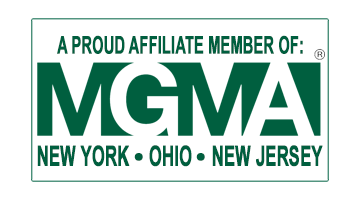As we begin preparing for the festivities of the Thanksgiving Holiday and remembering the things we are thankful for this year, let’s not forget to also begin thinking about ways in which we can start preparing for the relief that many of your patients and customer will come into during tax season. You may be thinking that it’s way too early to start thinking about what happens in February, March and April but, in truth, the first recipients of tax returns will be getting them by mid-January while the peak for tax returns quickly follows in mid-February! That’s not a lot of time to prepare unless you start doing so now.

Between H & R Block, CNN Money, Bankrate and USA Today, they report that no less than one third of all refund recipients (and as high as 41.9%) will use at least a portion of it to pay down their debt. So, it is in fact paramount to get in line now to make sure that the majority of consumers who will use a portion of their return to pay their outstanding financial obligations, use it to pay the unsettled bill that is affecting your revenue cycle.
So, it’s important to begin preparing your placement files to get them to your collection agency before Christmas in order to take full advantage of the entire tax season. With this in mind, here are five things that will help increase your collections return, not only for tax season, but for every placement you send to collections!
Gathering all pertinent information
In this day-and-age, consumers have a multitude of ways in which they choose to be contacted. It’s important to gather as much information as you can, noting the preferred method of contact for each person, and obtaining their written consent to be contacted via these channels. Be sure to collect their mailing address, home phone, cell phone (and permission to call it), messenger handle, email address, social security number, date of birth and any other special details about the customer or patient and not just for the responsible party but for the actual patient or co-borrower/co-signer of a loan or credit application. For a list of the information that should be collected, please see our blog article, Setting the Table for Improved Recovery.
Lower your days-in-receivable
A rule of thumb to always consider is that decreasing your “Account Age (days)” will help increase your remittance as it increases the likelihood that your collection agency can collect on those accounts for you. This is called the “Law of Diminishing Returns” which refers to a point at which the level of profits or benefits gained is less than the amount of money or energy spent in obtaining it. In other words, there is an age at which collecting on an account is no longer profitable (for anyone) considering the effort spent in collecting in.
Getting your accounts to your collection agency sooner will also allow you to get back to doing what you do best by re-purposing your manpower back to its core competencies. Let your agency do the collection work for you sooner, and you will reap the many benefits of doing so!
Over a year ago Simon’s added an "Account Age (days)" field to its placement confirmation report. This displays the number of days that have passed since the "Date of Service" for each account placed with Simon's Agency. This new column in effect shows the age of each and every account that our clients place with us. This should illustrate how important this one variable is to the overall return on your collection strategy.
So, get your accounts to the collection agency as soon as you can. Many agencies, like Simon’s, can even offer special pricing for what the industry terms “pre-collection” or “early-out/self-pay” accounts, those that the agency takes from day one or works once insurance has been paid or declined in order to get a jump on the part that falls under patient responsibility.
Reducing the age of the accounts you place into collections is guaranteed to improve your collection return. To learn more about understanding when an account should be placed into collections, read our article, Enough is Enough.
Place electronically
Most agencies offer electronic placements (if they don’t, it may be time to look elsewhere for an agency that stays current with an ever-changing digital and cloud-based business environment!) so make sure you take advantage of the best modern technology has to offer. Using electronic placement systems should enable you to have a regular routine of placing your accounts monthly at the very least and as often as weekly. And please note, placing PDF documents through an online portal is not a true example of electronic placements as PDFs will still require a user to manually enter the data into the agency's system. True electronic placements will usually incorporate a spreadsheet (CSV file) that will be directly loaded into the agency's system without specific human intervention.
Whether you use a system format such as Athena, Epic, Medent, Zoll Data, etc. or manage your own system, any technologically sound agency should be able to provide a secure online portal or pipe that will allow you to easily and securely place your files into collections. Be sure to inquire about your agency’s ability to handle this type of file as it will allow your accounts to be immediately integrated into the agency’s collection process allowing recovery efforts to commence much sooner than they otherwise would have and lowers the risk of typos and mistakes commonly made with data entry.
Educate your agency
Share the basics regarding your product, service or specialty. The more questions the agency can answer while still on the phone, the better chance they will have at recovering your money. This holds especially true in the healthcare industry where a patient can receive multiple bills from a bevy of different facilities all related to the same medical emergency, procedure or even regular preventative health measures. It can be confusing to the patient or responsible party to distinguish between the different services they have received and it is helpful if your agency is prepared to walk them through the specific obligation your bill refers to. Sometimes this is the most productive method of making someone understand their responsibility for a bill – whether it’s something they should submit to insurance or it’s something that falls under patient responsibility.
This is not limited to healthcare, though, any service or product for which a bill is generated requires its own unique touch and knowledge about your organization that can only help the agents’ recovery efforts on your behalf.
Get out of the way!
Don’t let your customers or patients push back to you once their accounts are in collections unless your organization has made an honest mistake that you need to rectify on their behalf. If this is the case, it should also be communicated back to your agency so everyone is on the same page.
Outside of this, however, any calls from a patient or customer whose account has been placed into collections should be directed back to the agency in order to pay their bill or work through any issues that may or may not exist. This can be the most difficult part of using a collection agency. You are going to want to cave in to the demands of your patients. But don’t. You chose your agency for a reason and they have perfected the skill of delicately balancing the emotional impact of their collection efforts on your patients and customers with a credible knowledge of their financial situation and ability to pay. Let them do this work for you and insulate your billing department from this advanced process. Always remember – this is why you hired the collection agency in the first place!
For more information and pointers on this topic, please check out our article, What Kind of Protocol is Necessary for an Effective Debt Recovery Program.

In conclusion, this is by no means a definitive list, but these steps represent five key areas that will none-the-less help improve the return on your collection strategy and give your agency the tools it needs to perform at their maximum level. And don’t think we’re asking you to do all the work, here! Simon’s Agency, for example, prepares for tax season as hard as any agency can. To see some of the steps we take to ensure the best returns during tax season, see our article, How Simon’s Maximizes Recovery During Tax Season.
In the meantime, have a wonderful and blessed Thanksgiving Holiday!
This blog post was updated on November 11. 2019 to reflect current interpretations on permission-based communications, data requirements, and agency operations.
For more helpful topics, sign up for our monthly e-newsletter, "Billing & Collections Adviser" by clicking this link (or filling out the form on this page):









